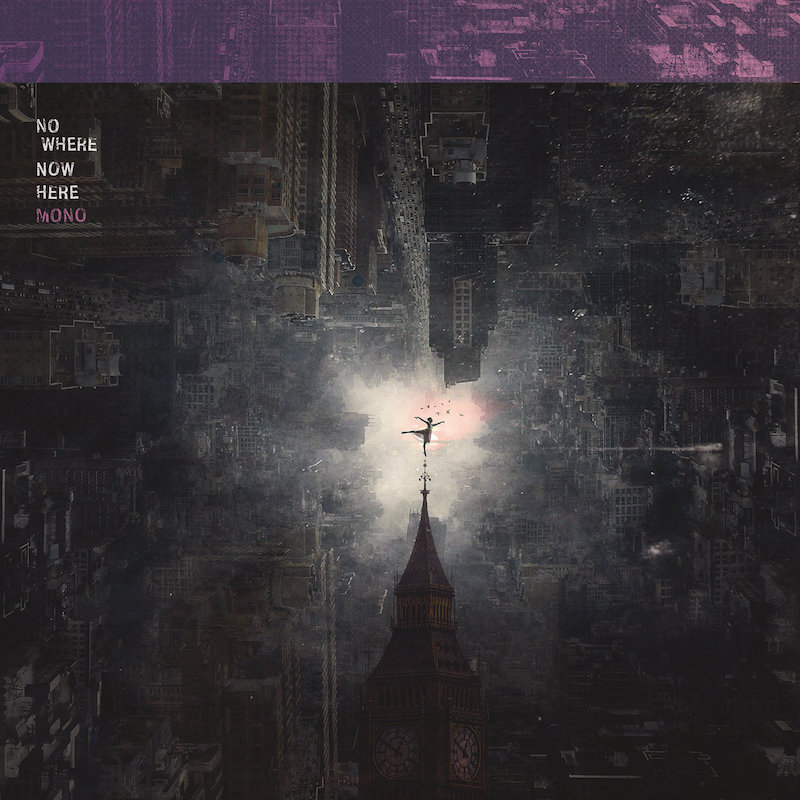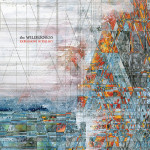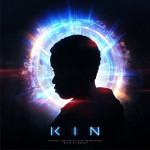Mono : Nowhere Now Here

Mono’s tenth record sees them returning to their central ethos after a number of experiments. It’s interesting to hear them soldier on always capably and ever-unflappable even in the face of the broader collapse of post-rock as a genre in the past ten years or so. They’re one of a very small group of bands, essentially numbering just them, Mogwai, Godspeed You! Black Emperor and Sigur Ros, that can still consistently stoke critical attention and draw enough numbers from their records to justify it. Part of that is because of the long-tail of Hymn to the Immortal Wind, a record now five in the past, which was and likely still is their greatest accomplishment (and one of the finest of the genre). But unlike other bands of the genre, who produced one or perhaps two great works and then struggled to remain relevant, constantly reinventing themselves until they had sacrificed what essential character made their band desirable in the first place, Mono has largely stayed true to the pattern they laid for themselves as early as Under the Pipal Tree, their debut.
A brief history between Wind and this record would acknowledge the brevity and lo-fi charm of its follow-up For My Parents, the conceptual honing of the dual release The Last Dawn and Rays of Darkness which split more beautiful and more heavy compositions on separate records, and the more orchestral Requiem for Hell which loosely transcribed Dante’s Inferno. Each of those albums constituted, in retrospect, not a small experiment but a small isolation, taking characteristics and influences of the group and cordoning them off for special focus and attention, from their lo-fi emo/punk influences to the classical-influenced to the metallic end of their sound to the orchestral. What Nowhere Now Here represents then is not a further experiment but a recombination, making a standard issue Mono record with those lessons learned.
The success of this album then (and it is a success, standing comfortably as a full peer next to its capable kin) comes less from specific accomplishments of these compositions, strong as they are, and more a testament to the strength of concept and faith in concept the players of Mono have. You can see a similar fixation on central conceit and aesthetics within their other post-rock peers, from the anarcho-punk political chamber orchestra work of Godspeed to the gorgeous and alien ambient prog folk soundscaping of Sigur Rós to the roaring post-shoegaze alt-rock of Mogwai. For Mono, the focus has always been something informed by their Japanese upbringing, a quiet post-Buddhism where the mindset of the alchemical union of joy and suffering is suffused into being and the role of music is to pay wordless testament to this. Their music has a gorgeous ache to it like any great literary novel, evoking memories of the permanence of the impact of life after death or the impact of parents and childhood or of images of hope and suffering and hell that are as stained by beauty as they are stained by blood and pain, such that you do not know what or even if there is a bottom layer or central object or if it is all valence with no center.
Nowhere Now Here is not interested in breaking that mold for the group. And, thankfully for them, music is unlike many of the other arts where you are required to change and evolve and turn ever away from yourself; ultimately, if the songs are good and the album flows well, then you’ve made a good record. Mono has done this. The songs are all beautiful silk knives, too soft to cut until they are stained red with your blood. Guitars float and cluster and spray less like rock instruments and more like cellos or viola; the structure of the works doesn’t feel as much post-rock as it does detached from rock altogether, a mere instrumental palette swap away from being described as purely orchestral music. There is a fixation in the track titles and art on death and departing, and the great Kierkegaardian trembling before death that rattles us in life. The album is, in turns, as comforting as it is unnerving, confirming both the majesty of the order of birth and death as much as the weeping fear of the transition of the living into the dead. It is, like every other Mono record, answerless. But art, thankfully, is not about answers; it is about beauty, ugliness, aesthetic and evocation. On those marks, Mono is once more, unsurprisingly, successful.
To be listened to alone, at high volume, on buses or in the rain and fog.
Similar Albums:
 Explosions in the Sky – The Wilderness
Explosions in the Sky – The Wilderness
 Grails – Chalice Hymnal
Grails – Chalice Hymnal
 Mogwai – KIN
Mogwai – KIN
Langdon Hickman is listening to progressive rock and death metal. He currently resides in Virginia with his partner and their two pets.

